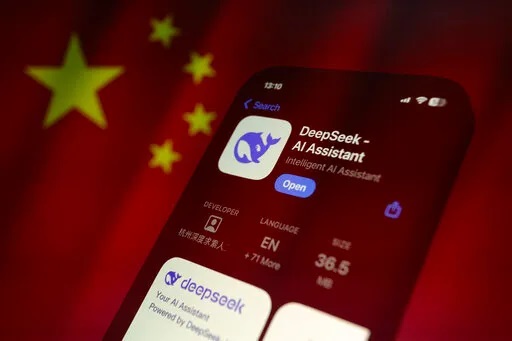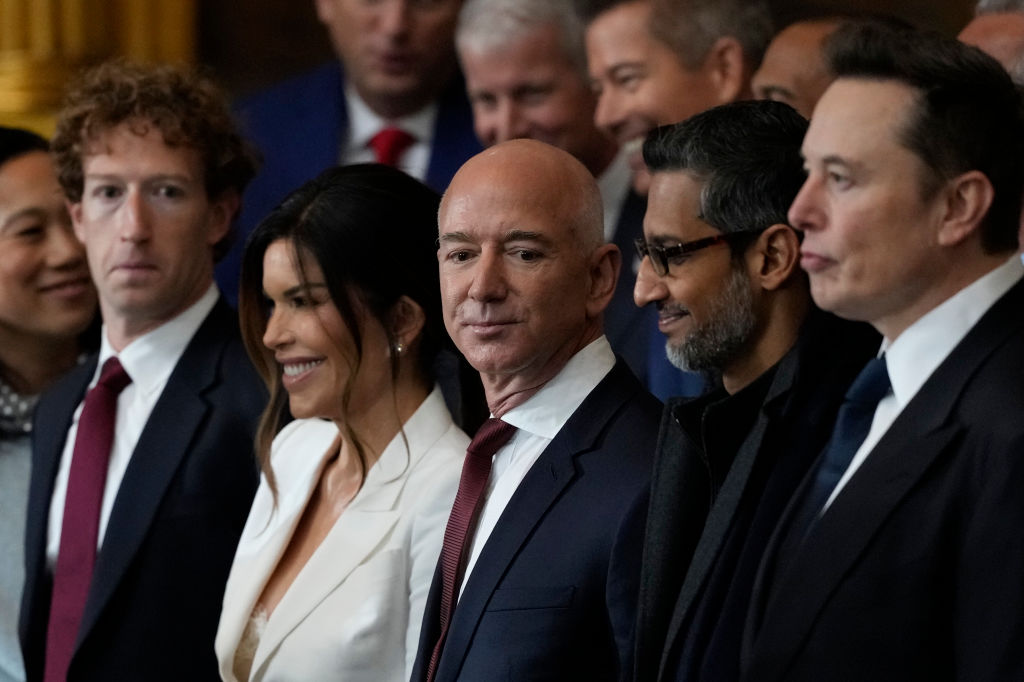Greenwich, Connecticut, is a town of 63,000 people just twenty-eight miles away from New York City. It’s a wealthy community with a median household income of $127,123 and the average home value over $1.2 million.Greenwich, Connecticut, is a town of 63,000 people just twenty-eight miles away from New York City. It’s a wealthy community with a median house- hold income of $127,123 and the average home value over $1.2 million.
The well-manicured lawns and eight-car garages may be caricatures of country club Republicanism, but don’t be fooled. Democratic financier Ned Lamont launched his political career here en route to becoming governor. In 2020, Joe Biden received 61 percent of the vote — the formerly reliable GOP town has gone fully blue in the past two presidential cycles.
With a well-funded election center, the Greenwich County registrars have, year over year, returned money to town coffers. In 2021, the election office had $22,169 left over from its budget, and in 2020 the registrars returned $93,686, according to Republican former state representative Kimberly Fiorello.
Yet without even asking for it, Greenwich was offered a grant worth $500,000 from the US Alliance for Election Excellence. Formed in April 2022, the USAEE is an $80 million initiative created by the Center for Tech and Civic Life.
Does “Center for Tech and Civic Life” sound familar?
During the 2020 presidential election, CTCL dished out more than $400 million, donated by Mark Zuckerberg and his wife, among a few other wealthy donors, in response to the Covid-19 pandemic. In 2021, federal election assistance commissioner Benjamin Hovland told Congress that the Zuckerbergs’ donation went to election offices to cover the costs of personal protection equipment, disinfecting equipment for polling places and measures to ensure proper social distancing for workers and voters come Election Day.
However, Zuckerberg’s money wasn’t just used to purchase masks and hand sanitizer. In Chester County, Pennsylvania, just 5 percent of the $2.5 million grant distributed by CTCL went to covering the costs of personal protection equipment. More than half of the money was used to ramp up mail-in voting operations, including fourteen additional ballot dropboxes, as well as body cameras for staffers, according to director of voter services Bill Turner.
Turnout has never been a problem in the affluent Philadelphia suburb. More than 77 percent of eligible voters cast ballots there in 2016 — 30 percent higher than the national average. Yet it was among the largest investments Zuckerberg made in the swing state. Hillary Clinton won the county by nine points in 2016. By 2020, Biden’s margin grew to nearly twenty points, which proved instrumental in a state he flipped with a mere 80,000 votes. Voter turnout in Chester County soared to nearly 84 percent and nearly half of all ballots were cast by mail. Similar patterns played out across Democratic strongholds in competitive states that received assistance from CTCL.
While using private money to cover staffing costs, buy new equipment and prepare for early voting may be less than ideal, that alone doesn’t necessarily translate to increased influence by the Zuckerbergs or their project. Except the grant money from CTCL wasn’t just free money for election centers to use at their own discretion. If a city wanted to use CTCL funding for outside help, it had to be approved by CTCL in writing. Typically, CTCL would provide election centers with one of their own partner organizations with which to work, and in some cases initiated this work unbidden.This was the case in Green Bay, Wisconsin, which received $1.09 million in grants. It was CTCL that first put forth the idea of embedding Michael Spitzer-Rubenstein from the National Vote at Home Institute within various Wisconsin election offices. Spitzer-Rubenstein, an out-of-state Democratic activist, quickly took control of Green Bay’s election planning. He had requested permission from Green Bay officials to have his organization assist in ballot curing and even had keys to the central counting facility ahead of election night. On Election Day, by all accounts it looked like Spitzer-Rubenstein was running the show — he appeared to supervise the counting of ballots, according to testimony given by Sandy Juno, clerk of Brown County.
Donald Trump won Brown County, the seat of Green Bay, by seven points. No shock there since Brown County leaned Republican in five of the last six elections, but Biden over-performed Hillary Clinton’s 2016 numbers by four points thanks in part to CTCL’s voter outreach efforts in liberal Green Bay. The home of the Packers witnessed a record 84 percent voter turnout with two-thirds of all ballots cast by mail, which may have been part of sealing Biden’s 0.63 percent victory in the state as a whole. Soon after his inauguration, Biden appointed National Vote At Home Institute CEO Amber McReynolds to the Postal Service’s board of governors.
In 2020, Georgia, a key battleground state, received 9 percent of CTCL’s total funding despite only possessing 3 percent of the nation’s population. More than 90 percent of CTCL funding in Georgia went to seventeen counties won by President Biden. The CTCL-funded counties gave Biden 73 percent of the votes he received statewide, thus clinching Biden’s victory in the Peach State by just three-tenths of a percentage point. Just four years earlier, Trump had won the state by more than five points. Counties that were funded by CTCL moved 2.3 percentage points more Democratic, and nearly 90 percent of CTCL funding in swing states went to Democratic-voting counties. The pattern played out across the country. Public health alarmists may have been shouting from the rooftops that “Covid doesn’t discriminate,” but these supposedly nonpartisan pandemic relief operations surely did. Counties carried by Trump received an average of $0.59 per capita funding from CTCL, whereas on average Biden counties received $2.85 per capita.
“The essential purpose of this program was to help safe elections in the face of Covid, and yet we see in breakdown and analysis, swing states got far more money. I don’t recall anything from the CDC that said Covid was spreading more vociferously in states that were influential in the presidential election,” Jason Snead of the Honest Elections Project told The Spectator.
Twenty-five states and twelve counties passed legislation banning third-party funding of election administration in the wake of CTCL’s 2020 get-out-the-vote operations. But a ban doesn’t exist in Connecticut, and in spite of US Alliance for Election Excellence ties to CTCL and organizations funded by liberal dark money groups like New Venture Fund, the tony town of Greenwich jumped at the Alliance’s proposition.
“This is a community that really is very careful about accepting private donations to the schools,” Fiorello, the former Connecticut state representative, said. “They look twice if somebody wants to buy the police department new motorcycles or bicycles. They’re very careful about taking money, but somehow half a million dollars is offered to the elections office. Everybody was just dying to take it.”
While CTCL was previously able to funnel money directly into local coffers, it has turned to a new model in advance of 2024. Greenwich is among the fifteen election offices that have been recognized as “centers for election excellence” by the CTCL’s US Alliance for Election Excellence. Membership qualifies these local election offices for many of the same services and resources that USAEE provided during the 2020 campaign. Six of those locales are in states with bans on private election funding. This is far from as innocuous as it might sound: the membership model seems to be designed specifically to exploit loopholes in local bans on receipt of private funding, according to Snead.
“If you are a local election office that is in a state with a ban in place, you can now buy your way into the [CTCL] program, expending taxpayer funds to purchase a membership,” Snead said. “That membership gets converted into credits that can then be spent to purchase services from either CTCL directly or from a number of partners and all of these partners that we’re aware of that are making up the leaders of this new alliance they’re all nonprofits that are working in the election space with deep ties to the Democratic Party.”
There are two tiers for membership, according to a report by Snead’s Honest Elections Project. A basic membership gives election administration resources, training and consulting for $1,600; the premium membership, at $4,800, offers additional invitations to live and recorded trainings and demos hosted by Alliance partners. The US Alliance for Election Excellence offers a scholarship to election offices if the cost to join is a burden.
“They’re taking tax dollars, and they are converting it into credits and locking you into a network,” Snead said. “That network is composed entirely of organizations that are on the political left and that are tied to partisan activities on the political left, so it’s a fairly clever system. It’s all designed to get around the bans on private election funding.”
Georgia’s DeKalb County found its way around its state private funding ban by directing a $2 million grant from the Alliance to the county finance office and then appropriating it to the Board of Elections.
Unable to receive direct grant money due to a ban in Utah, Cache and Weber Counties still joined the Alliance, thus obtaining access to training courses and consultations on topics such as combating election misinformation, cybersecurity and recruiting poll workers provided by CTCL and its partner organizations.
The Alliance’s partner organizations purport to be neutral resources, but the Center for Secure and Modern Elections and the Institute for Responsive Government, both of which push for liberal election reform, are pop-up projects created by the New Venture Fund, a liberal dark money group managed by Arabella Advisors, an umbrella group that pours tens of millions of dollars into liberal causes. CTCL has received $25 million from the New Venture Fund which is managed by Arabella. Hansjörg Wyss is a Swiss billionaire who has illegally donated to political candidates at the turn of the century, but now prefers the dark money route to funnel money into US elections. His nonprofits have also sent $265 million to Arabella Advisors dark money groups like the New Venture Fund, which, according to Americans for Public Trust, has received $57.8 million from Wyss’s organizations. Back in 2020, it gave tens of millions of dollars to CTCL.
Other figures in the mix have also proved controversial. CTCL executive director and founder Tiana Epps-Johnson is an Obama Foundation fellow and an alumna of the Democrat-affiliated New Organizing Institute (NOI), which the Washington Post once called the “Democratic Party’s Hogwarts for digital wizardry.” Such ties provoked fierce debate in Connecticut. The Greenwich Representative Town Meeting voted against joining the Alliance, but ultimately voted in favor of accepting its grant.
“They just couldn’t turn away free money,” Kimberly Fiorello observes. “It’s the lure of these extremely well funded nonprofits that are playing in the public policy field. They are pushing public policy as a nonprofit which is supposed to be apolitical.”
Kathy Darling Allen, the county clerk in Shasta, California, was excited at the opportunity for membership with the Alliance. Shasta County has a population of 182,000. Donald Trump won the county with 65 percent of the vote. “I was familiar with the work CTCL has done in this space and some of the partners that were working with them on this program, and it just seemed like a great opportunity to collaborate with other folks doing work in the space so we were excited to apply and even more thrilled and honored to be selected,” Allen said.
But not everyone took the bait. In Ottawa County, Michigan, the Alliance offered the board of elections a grant worth $1.5 million, but county clerk Justin Roebuck rejected it. “While I value the overall stated goals of the Alliance, I firmly believe that funding for election administration must come from federal, state and local governments,” Roebuck said in a 2023 statement withdrawing his county from consideration for membership. “Election administration is critical government infrastructure and when private individuals seek to fund election operations, it casts a shadow over public trust in the process, particularly when the resources can be tied to individuals or groups who may have also contributed to political parties or candidates.”
Other local leaders should follow his example, says HEP’s Jason Snead. “You’ve got not just a potential conduit for partisan influence over election administration, but now you’ve got a potential conduit of foreign influence over election administration as well,” he said. “It’s a pretty troubling dynamic and that’s something that would be good for states to understand what is happening in their election offices right now.”
This article was originally published in The Spectator’s January 2024 World edition.


























Leave a Reply